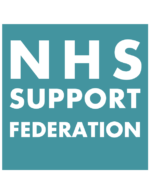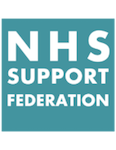The NHS, how does it work?
How does NHS funding work?
 Around 80% of NHS funding comes from general taxation, which is progressive, meaning that you pay a bigger share of your income in tax as your earnings rise.
Eg those on over £100,000 pay some of their income at 50% rate of tax, where those earning less than £40,000 pay at the 20% rate of income tax.
National insurance contributions provide nearly 20% of the NHS budget. However, this tax is less fair as the low-paid and young tend to pay a bigger share of their income.
User charges, such as the prescription charge only provide around 1% of the NHS budget.
In Scotland, Wales and Northern Ireland, there are no charges for prescriptions as healthcare is devolved and they can decide how to spend the block grant they get from the UK Treasury.
The downside to funding through general taxation is that the NHS becomes vulnerable to governments that want to restrict public spending and keep taxes low, and this explains why the NHS has endured long periods of underfunding and is less well funded than other similar European countries.
Around 80% of NHS funding comes from general taxation, which is progressive, meaning that you pay a bigger share of your income in tax as your earnings rise.
Eg those on over £100,000 pay some of their income at 50% rate of tax, where those earning less than £40,000 pay at the 20% rate of income tax.
National insurance contributions provide nearly 20% of the NHS budget. However, this tax is less fair as the low-paid and young tend to pay a bigger share of their income.
User charges, such as the prescription charge only provide around 1% of the NHS budget.
In Scotland, Wales and Northern Ireland, there are no charges for prescriptions as healthcare is devolved and they can decide how to spend the block grant they get from the UK Treasury.
The downside to funding through general taxation is that the NHS becomes vulnerable to governments that want to restrict public spending and keep taxes low, and this explains why the NHS has endured long periods of underfunding and is less well funded than other similar European countries.
The key ideas behind the NHS
The idea of the NHS is to give the whole population access to comprehensive treatment whenever they need it, free at the point of use, so that when you are ill you don’t have to worry about paying a bill.
When and how you receive treatment depends upon your clinical needs, not your ability to pay, as the cost is shared through the tax system.
Many other countries offer a comprehensive range of healthcare but none have such low charges making it amongst the most accessible and fairest in the world.
Through the NHS the risk of ill health is shared across the whole community not borne by the individual.
Gordon Brown once called it “the best insurance policy in the world”. Standard insurance policies always have conditions for paying out, whereas the NHS provides comprehensive care to us all with very few conditions.

